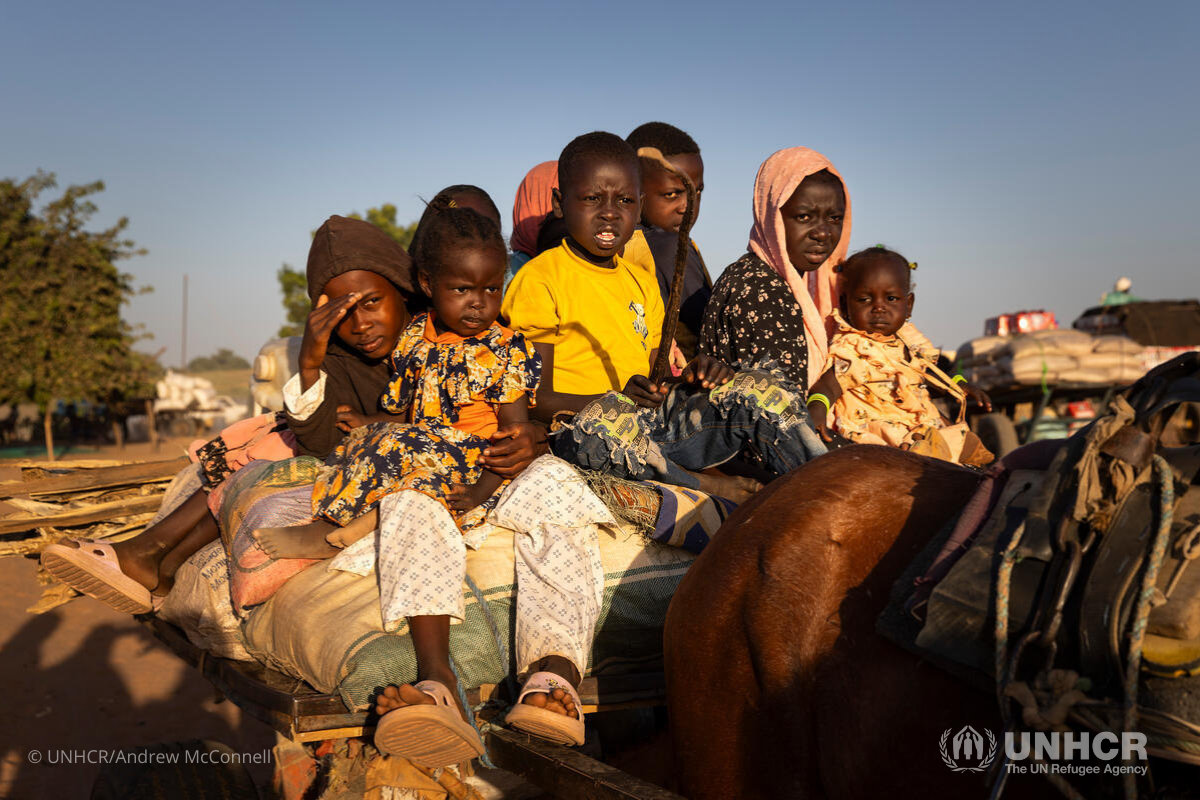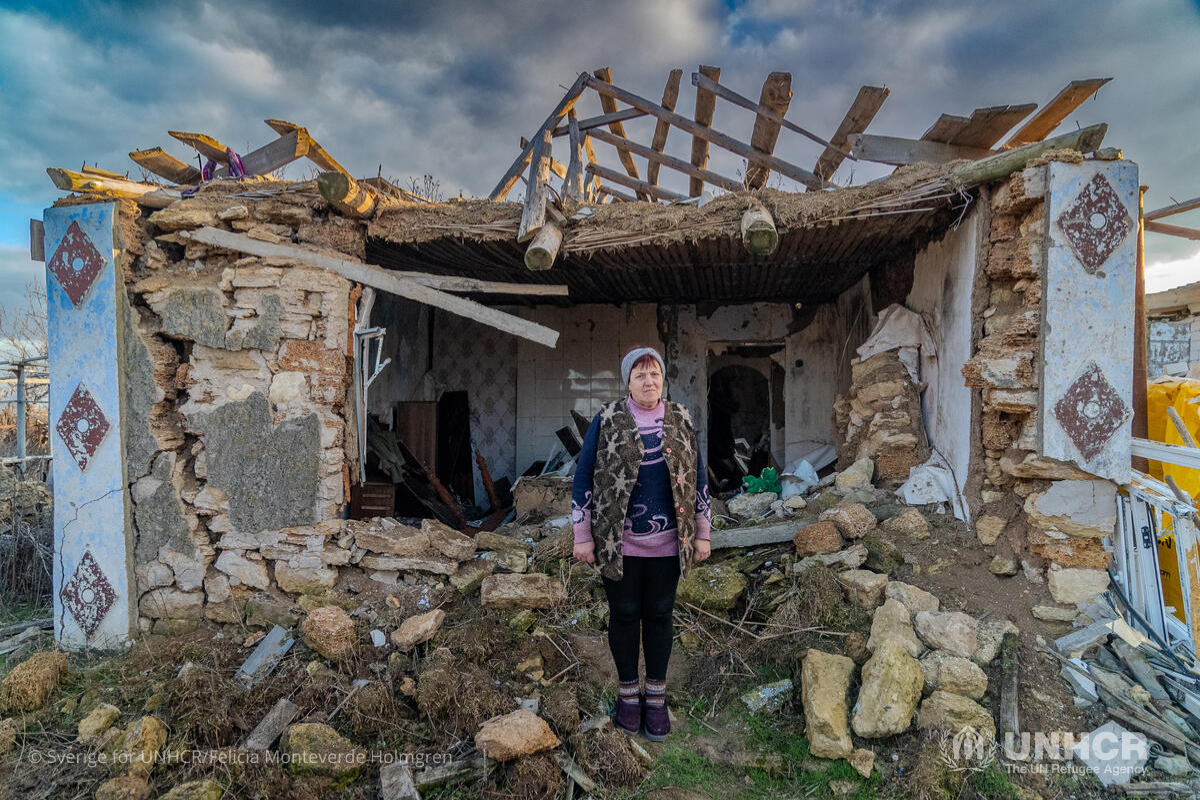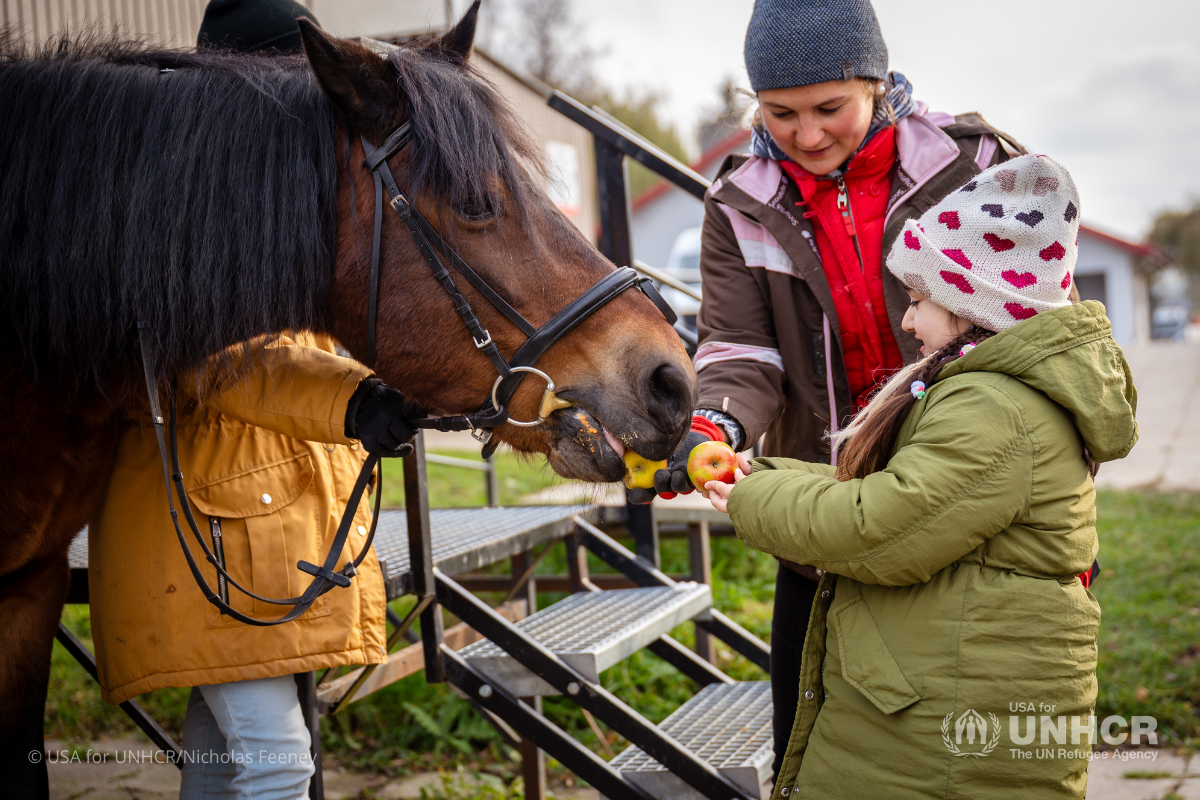UNHCR receives record level of early funding to support refugees and displaced people as emergencies escalate

GENEVA – Donor governments pledged a record US$ 1.143 billion today to provide protection, life-saving assistance and solutions to millions of people uprooted by the increasing number of conflicts across the world, showing their support for the work of UNHCR, the UN Refugee Agency, and its partners in 2025. Along with a commitment of $355 million from UNHCR’s private sector National Partners, the total amount announced is $1.5 billion, covering 15 per cent of anticipated needs for the year.
These resources will allow UNHCR to start the year with greater confidence and continue its work, a lifeline to many forcibly displaced people, delivering aid in emergencies, providing protection and humanitarian assistance, and seeking longer-term solutions.
The United States led the pledges with $200 million, followed by Denmark and Sweden, with notable increases announced by the Netherlands and Germany. Several countries showed new or strengthened early support this year, including Armenia, Bulgaria and Lithuania. The governments of Sweden, Norway, Denmark, the Netherlands, Switzerland, Australia and Ireland showed once again their strong support by pledging flexible funding, which enables UNHCR to quickly deliver aid in new emergencies and to respond to underfunded situations.
Governments attending UNHCR’s pledging conference today also guaranteed $283 million in funding for 2026 and beyond. This is crucial to the planning and stability of UNHCR’s long-term programmes aimed at fostering lasting solutions.
“We live in a world ravaged by brutal and seemingly endless conflicts that tear lives apart and send people on a desperate flight for safety,” said Filippo Grandi, UN High Commissioner for Refugees. “The robust support shown today to refugees and other forcibly displaced people resonates as a much-needed message of solidarity and humanity. The pledges made are a commitment to save lives, restore dignity and bring hope to millions of people forced to flee.”
UNHCR’s Global Appeal asks donors for $10.248 billion in funding for 2025 to support forcibly displaced and stateless people, the majority living close to their countries of origin. With forced displacement at unprecedented levels – about 123 million people forcibly displaced worldwide – securing these funds will be crucial to respond to both new conflicts and long-standing crises.
In the last few months alone, conflict, persecution and violence have forced millions to flee their homes – in Sudan, Ukraine, and most recently in Lebanon. Millions more have been displaced for decades, having fled bloodshed and instability in countries like Myanmar, Syria and the Democratic Republic of the Congo.
“Generous as it is, humanitarian funding is not keeping pace with the growing needs,” Grandi said. “As peace becomes more elusive, and conflict and persecution continue to force millions from their homes, we are facing a dire situation, with few solutions and escalating crises. Humanitarian aid must focus on reducing dependency, helping displaced communities thrive, not only survive. To achieve that, we need more and better funding but also bold solutions.”
With the funding UNHCR received in 2024, by mid-year, over 3 million people had been individually registered, 1.2 million supported with their civil identity or legal status, and over 500,000 received legal assistance. Across UNHCR operations, over 2 million people received life-saving cash assistance, over 9.5 million individual consultations were conducted in UNHCR-supported health care centres, 5.6 million people were supported with access to water and sanitation services and 630,000 received shelter and housing assistance.
In 2025, escalating conflicts, intensifying natural disasters and ongoing crises are expected to drive further displacement and suffering. Durable solutions, however, remain unattainable for many, as refugees are displaced for an average of 20 years and most internally displaced people for more than a decade.
UNHCR will explore more efficient and innovative ways to protect and pursue solutions from the very start of emergencies. This includes promoting refugees’ inclusion in national and local services, following positive examples in Uganda, Colombia and Kenya, as well as pursuing long-lasting solutions such as voluntary returns, local integration and resettlement.
Notes to the editors:
UNHCR’s Global Appeal 2025 describes UNHCR’s expectations for 2025, including anticipated changes in the global population of forcibly displaced and stateless people, the budget based on their needs, and the actions UNHCR plans to take.
The Global Appeal seeks $10.248 billion in funding for 2025 to support forcibly displaced and stateless people in 136 countries and territories across the world, 5 percent lower than the current budget for 2024. (The 2024 budget grew during the course of the year due to additional needs for the Sudan situation.) The 2024 budget was only 45 percent funded as of November 30.
The Global Appeal includes a foreword from the High Commissioner, a chapter covering the funding picture so far in 2024 and the funding outlook for 2025, and sections describing UNHCR’s planned activities and its strategy in the various regions of the globe. The Global Appeal website also includes downloadable plans for over 50 of UNHCR’s country and multi-country operations, and descriptions of the outlook for 13 major displacement situations around the world.
The call for funding includes budgets for activities such as shelter, cash assistance, emergency relief, registration of refugees, asylum processing, resettlement, voluntary repatriation, child protection, health, education, water, livelihoods, clean energy, and the fight against gender-based violence. There are also detailed sections on internal displacement, statelessness, climate action, accountability to affected people, development, and alternatives to dangerous journeys. The Appeal also introduces new “core output indicators” measuring key results achieved by mid-2024.
In 2024, the five largest donors contributing to UNHCR’s work are the United States of America, Germany, the European Union, Sweden and France. UNHCR also acknowledges the support of its five largest government donors of unearmarked funding – Sweden, Norway, the United Kingdom of Great Britain and Northern Ireland, Denmark and the Netherlands – as well as of National Partners providing such flexible funding, which the Agency allocates where it is needed the most, especially in emergencies and underfunded crises.
Originally posted by UNHCR, the UN Refugee Agency


